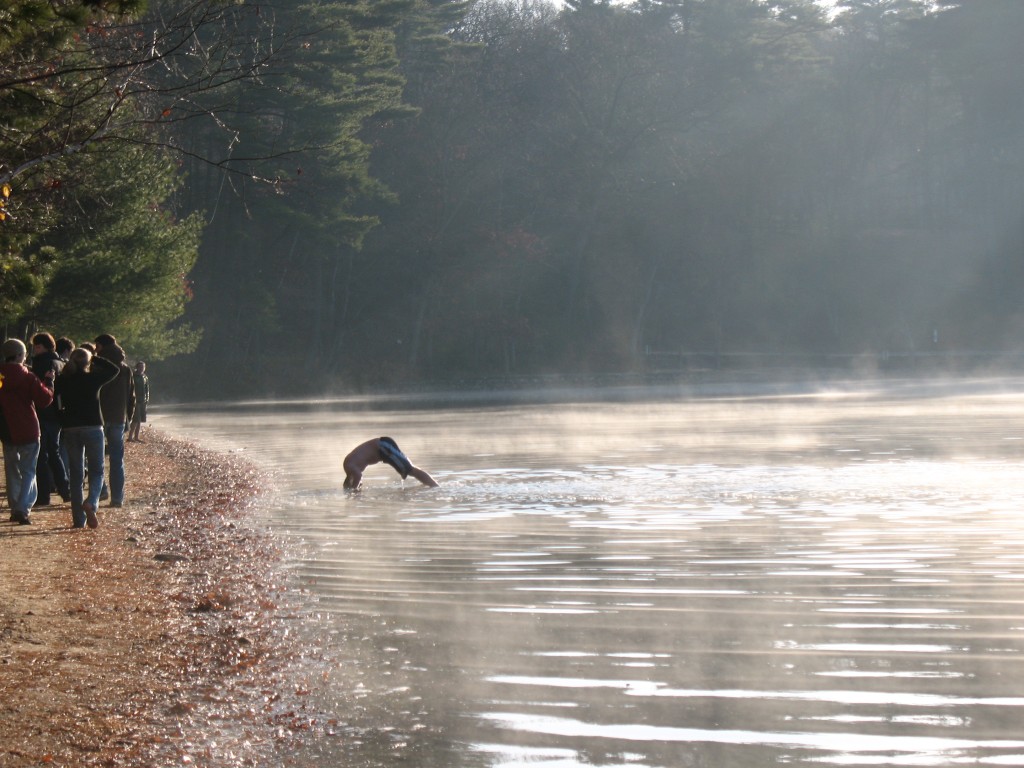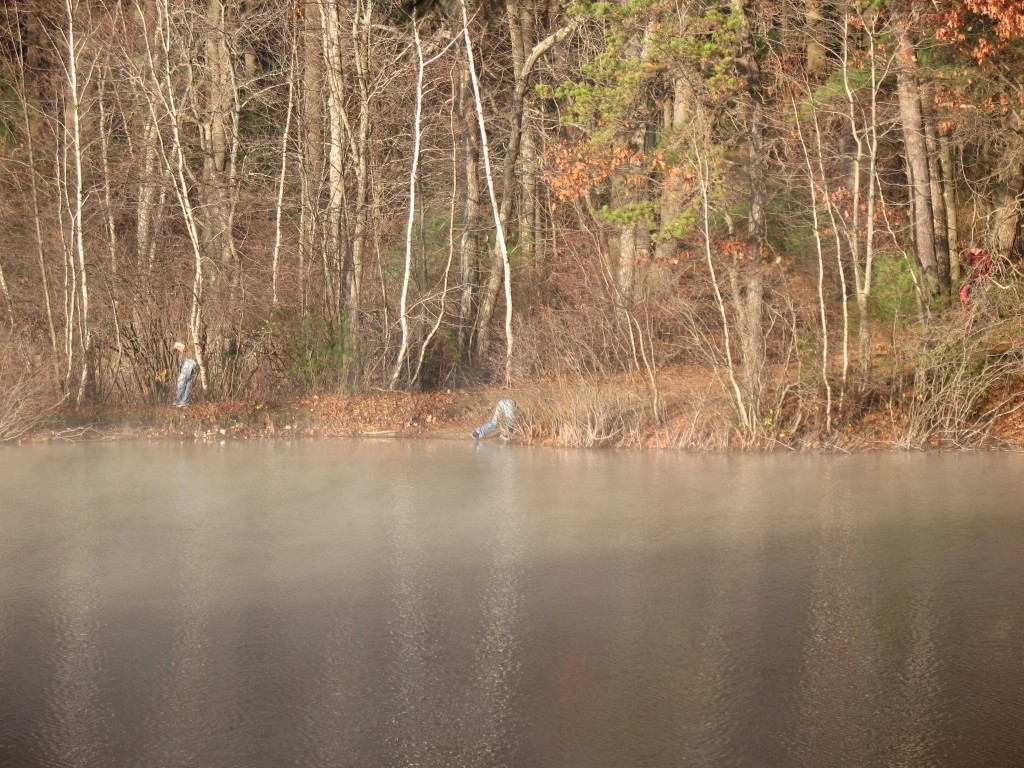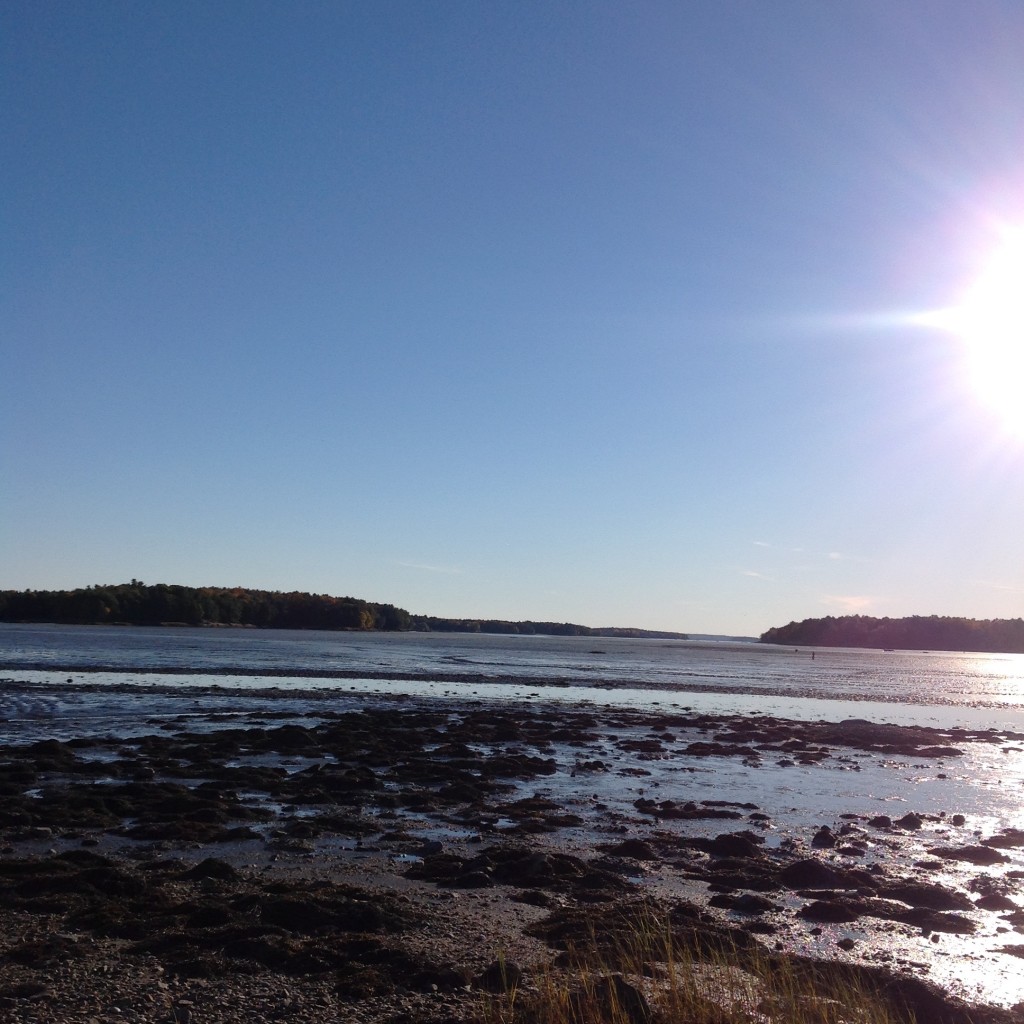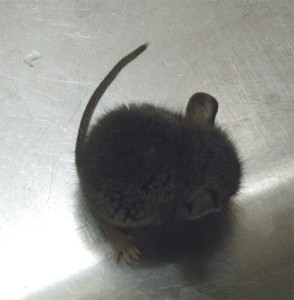When you invert your head, it looks like the finest gossamer stretched across the valley, and gleaming against the distant pine woods, separating one stratum of the atmosphere from another. Thoreau, The Ponds, Walden
There are few passages in Walden that better seize students’ imaginations than Henry Thoreau’s implicit command, “when you invert your head!” There it is, nested in its brevity among Thoreau’s long sentences, like a literary speed bump. “Wha…who put that there?” you say after settling back into your reader’s seat and checking the rearview mirror. For a moment, you may have been airborne; surely, you are awakened.
And, perhaps – he hopes – you are inclined to consider Thoreau’s advice. How do I invert my heard, you wonder?
Time for a field trip. In class, we’d close our books, and I would give students 3 minutes of “travel time”; we would meet at the Sudbury River, along the school’s border. By this point just beyond midpoint in Walden, we’d taken enough “excursions” to render students either compliant or wryly amused. We gathered on the thin, mudded shore, and the Sudbury, so slow that in flood it sometimes reverses direction, eased by, its flat waters reflective of the day’s white sky (if you were looking).
“Okay,” I said. “Here’s vital tutorial. It will change your life. Which is another way of saying it will change your perspective.” A few eyes roll; others look down. “He’s off,” whispers one boy, and a ripple of agreement shivers the group’s fringe.
I divide them into two groups, so that no one has to go silly alone. “Okay, line up along the shore with your backs to the river,” I say. “Then, spread your feet beyond shoulder-width. Now, bend forward and lower your head to where its top touches the ground in front of you and, supporting yourself with your hands, look steadily at the river’s surface through your legs.
“Is this for real?” asks one girl, inadvertently using one of Thoreau’s favorite words. “Yes,” I say. “It’s to help you realize perspective.”
A long minute passes. A few grunt with effort at this awkward stance. Still, all eight of them stay with it.
“O,” says the girl on the end. “The world just flipped. It’s upside down. Or maybe right side up.” “Yo,” say another. “Me too.” General agreement breaks out, and the second group begins looking for a place to begin.
Later, we talk this moment over, and they have much to say. It’s not lost on them that Thoreau’s invitation to inversion takes place just beneath the famous “earth’s eye” paragraph. Which requires only the shortest leap to the open-eyed habit of wonder that Thoreau hoped his readers would awaken to in their daily lives.
November’s end and December’s advent seems just the time for inverting one’s head, for bringing sky to ground.







